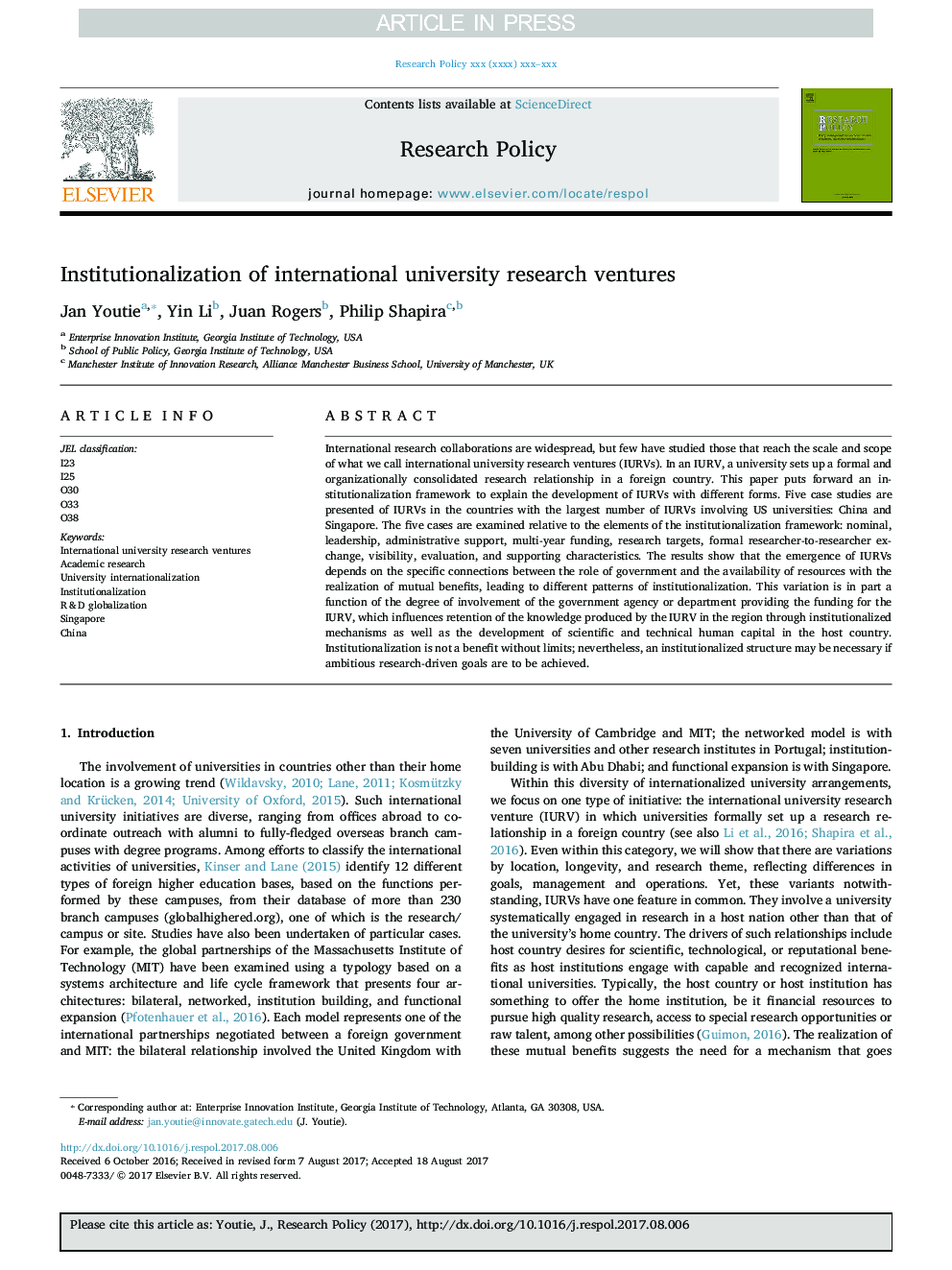| Article ID | Journal | Published Year | Pages | File Type |
|---|---|---|---|---|
| 5103878 | Research Policy | 2017 | 14 Pages |
Abstract
International research collaborations are widespread, but few have studied those that reach the scale and scope of what we call international university research ventures (IURVs). In an IURV, a university sets up a formal and organizationally consolidated research relationship in a foreign country. This paper puts forward an institutionalization framework to explain the development of IURVs with different forms. Five case studies are presented of IURVs in the countries with the largest number of IURVs involving US universities: China and Singapore. The five cases are examined relative to the elements of the institutionalization framework: nominal, leadership, administrative support, multi-year funding, research targets, formal researcher-to-researcher exchange, visibility, evaluation, and supporting characteristics. The results show that the emergence of IURVs depends on the specific connections between the role of government and the availability of resources with the realization of mutual benefits, leading to different patterns of institutionalization. This variation is in part a function of the degree of involvement of the government agency or department providing the funding for the IURV, which influences retention of the knowledge produced by the IURV in the region through institutionalized mechanisms as well as the development of scientific and technical human capital in the host country. Institutionalization is not a benefit without limits; nevertheless, an institutionalized structure may be necessary if ambitious research-driven goals are to be achieved.
Related Topics
Social Sciences and Humanities
Business, Management and Accounting
Business and International Management
Authors
Jan Youtie, Yin Li, Juan Rogers, Philip Shapira,
